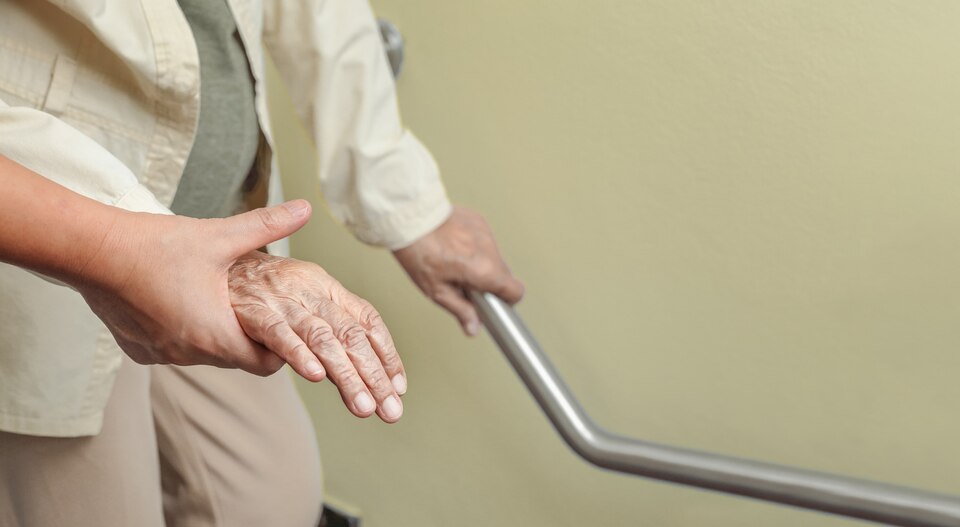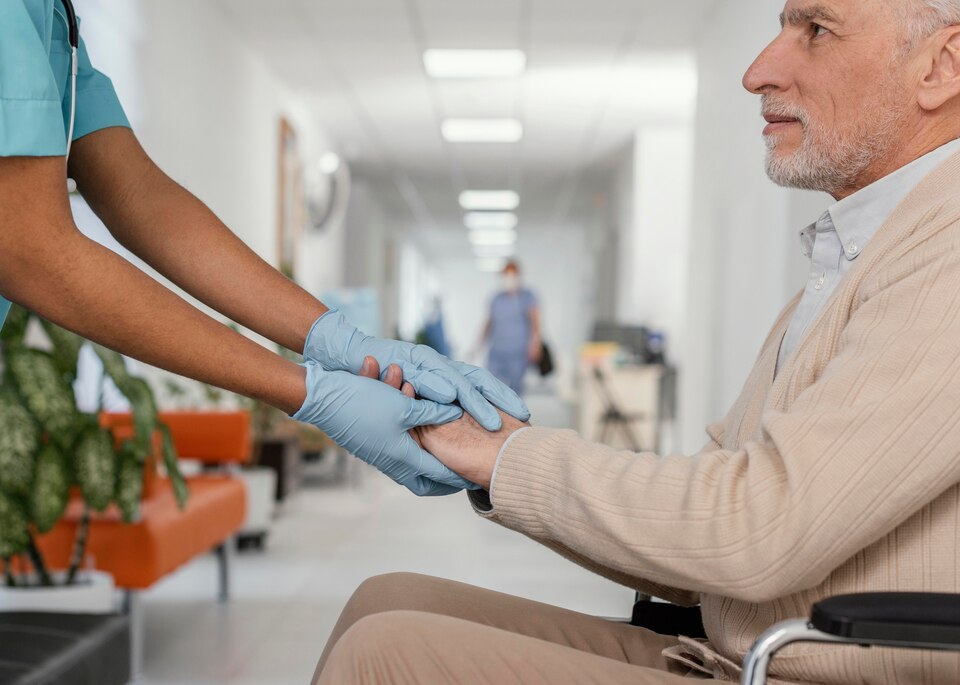Last updated on May 3rd, 2025 at 05:17 pm
 Parkinson’s disease treatment involves a multifaceted approach aimed at managing the symptoms and improving the quality of life for individuals with this neurodegenerative disorder. Parkinson’s disease affects a person’s movement. It is characterized by a gradual loss of dopamine-producing cells in the brain, particularly in a region called the substantia nigra.
Parkinson’s disease treatment involves a multifaceted approach aimed at managing the symptoms and improving the quality of life for individuals with this neurodegenerative disorder. Parkinson’s disease affects a person’s movement. It is characterized by a gradual loss of dopamine-producing cells in the brain, particularly in a region called the substantia nigra.
Dopamine is a neurotransmitter that plays a crucial role in controlling muscle movement and coordination. While there is no cure, significant progress has been made in Parkinson’s disease treatment and diagnosis over the years, offering hope and improved quality of life for those affected.
Parkinson’s Disease Diagnosis
Diagnosing accurately is the first crucial step in providing effective Parkinson’s disease treatment. Physicians rely on a combination of clinical assessments, neurological examinations, and patient history to make a diagnosis.
Neuroimaging techniques such as MRI and DaTscan can help rule out other conditions and provide supportive evidence for Parkinson’s disease.
Read: What are Generic Medicines?
Parkinson’s Disease Treatment
Once diagnosed, the focus shifts to managing the symptoms and enhancing the patient’s overall well-being. Here are some key aspects of Parkinson’s disease treatment:
1. Medications:
The primary treatment for Parkinson’s disease involves medications aimed at increasing dopamine levels in the brain, as dopamine deficiency is a hallmark of the disease. Levodopa and carbidopa are commonly prescribed to alleviate motor symptoms like tremors, rigidity, and bradykinesia. Other drugs, such as dopamine agonists and MAO-B inhibitors, can also be used alone or in combination with levodopa.
2. Deep Brain Stimulation (DBS):
In cases where medication alone cannot adequately control symptoms or causes significant side effects, deep brain stimulation surgery may be considered. This procedure involves implanting electrodes in specific brain regions to regulate abnormal brain activity, effectively reducing motor symptoms. Deep Brain Stimulation (DBS) has the potential to usher in remarkable enhancements in motor function and overall quality of life.
3. Physical Therapy:
Physical therapy, including exercises and mobility training, plays a vital role in managing Parkinson’s disease. It helps improve flexibility, balance, and coordination, reducing the risk of falls and enhancing the patient’s ability to carry out daily activities.
4. Occupational Therapy:
Occupational therapists work with patients to develop strategies for performing daily tasks and maintaining independence. They focus on improving fine motor skills and adapting the environment to better suit the individual’s needs.
5. Speech and Swallowing Therapy:
Speech and swallowing difficulties are common non-motor symptoms of Parkinson’s disease. Speech therapists can help patients regain their ability to speak clearly and safely swallow food and liquids.
6. Experimental Therapies:
Ongoing research is exploring potential disease-modifying therapies and novel treatments, such as gene therapy and stem cell therapy, which hold promise for slowing down or even halting disease progression in the future.

Alternative Treatment for Parkinson’s Disease
Here are some alternative treatments for Parkinson’s disease:
1. Acupuncture:
Acupuncture is an age-old practice rooted in the rich traditions of Chinese medicine, which entails the delicate insertion of fine needles into precise locations on the body. While the evidence for its effectiveness is mixed, many find acupuncture to be a relaxing and potentially beneficial addition to their treatment plan.
2. Massage Therapy:
Massage therapy can help alleviate muscle stiffness, reduce pain, and promote relaxation. It may be particularly beneficial for individuals experiencing muscle tension and discomfort associated with Parkinson’s disease. Massage can also help improve circulation and reduce stress, which can have a positive impact on overall well-being.
3. Yoga and Tai Chi:
These mind-body practices focus on balance, flexibility, and relaxation. They can help improve posture, reduce muscle rigidity, and enhance mobility. Regular participation in yoga or Tai Chi classes may also help manage stress and anxiety, which are common in Parkinson’s disease.
4. Diet and Nutrition:
Some individuals explore dietary changes and nutritional supplements to manage Parkinson’s symptoms. Antioxidants like Coenzyme Q10, omega-3 fatty acids, and vitamin E are examples of supplements that have been studied for their potential benefits.
5. Cannabidiol (CBD):
CBD, a non-psychoactive compound derived from cannabis, has gained attention for its potential to alleviate symptoms such as pain, anxiety, and sleep disturbances in individuals with Parkinson’s disease.
6. Herbal Remedies:
Some herbal supplements, such as ginkgo biloba and ginseng, have been explored for their potential to improve cognitive function and energy levels in people with Parkinson’s disease.
7. Mindfulness Meditation:
Mindfulness meditation practices can help individuals with Parkinson’s disease manage stress and anxiety, which can exacerbate symptoms. Meditation may also improve focus and emotional well-being.
8. Music and Art Therapy:
Engaging in creative activities like music and art therapy can provide emotional and psychological support. These therapies can enhance mood, reduce anxiety, and foster self-expression.
Conclusion:
While Parkinson’s disease remains a challenging condition to manage, the evolving landscape of diagnosis and treatment offers hope for better outcomes and improved quality of life for patients and their families.
Continued research and collaboration among healthcare professionals, researchers, and patients are essential to further enhance our understanding of this complex disorder and develop more effective treatments in the years to come.
> Consult a doctor and Order Medicine Online
Advantages of Generic Medicines
Generic medicines offer several advantages. They are more affordable than their brand-name counterparts, making healthcare more accessible and reducing the financial burden on patients. Generic drugs must meet the same stringent quality and safety standards as brand-name drugs, ensuring their effectiveness and safety.
Moreover, a wider availability of generic options promotes competition, further lowering drug prices. This affordability and accessibility enhance patient adherence to prescribed treatments, ultimately leading to better health outcomes.
FAQs on Parkinson’s Disease Treatment
Q.1 What is Parkinson’s disease treatment?
Parkinson’s disease treatment typically involves medications to increase dopamine levels in the brain, which helps alleviate motor symptoms. Physical therapy and lifestyle modifications, including exercise and a balanced diet, are essential for managing the disease. In advanced cases, Deep Brain Stimulation (DBS) surgery may be considered to improve symptom control.
Q.2 What is Parkinson’s hallucination disease treatment?
Treatment for Parkinson’s disease hallucinations typically involves adjusting medications, particularly those affecting dopamine levels, under medical supervision. In some cases, antipsychotic medications may be prescribed to manage severe hallucinations, although they should be used cautiously due to potential side effects on motor symptoms.
Q.3 Are there surgical options for Parkinson’s disease treatment?
Yes, Deep Brain Stimulation (DBS) is a surgical procedure that can be considered when medications alone are insufficient in controlling symptoms.
Related Links: